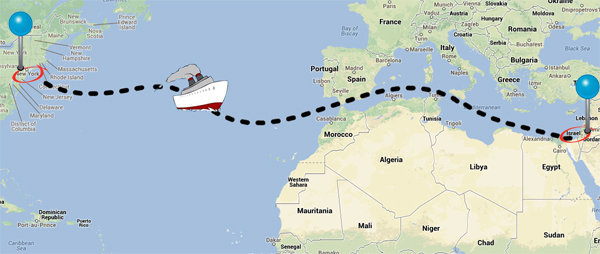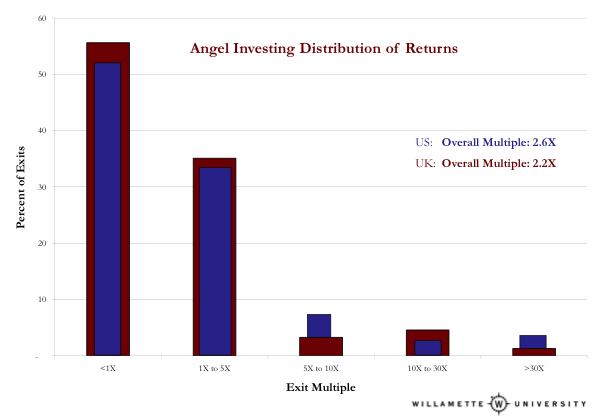2013 was a record year for the Israeli high-tech sector as the value of M&A deals and IPOs reached an eight-year high of $7.6 billion. Although there were several exits in the hundreds of millions of dollars (the average exit was for $170 million, the highest in decades), most of that sum was for a small number of mega-exits in high-tech.
Of the 45 Israeli exits last year, Google’s acquisition of popular social driving app Waze for about $1 billion made the most headlines.
Why Waze was valued over $1 billion
What was the big deal about Waze?
Well, for starters, it’s not every day you hear about titans like Google and Facebook going head to head in a race to buy out a company. Furthermore, the lucrative deal is one of the largest high-tech acquisitions in Israeli history. Google’s acquisition of Waze put Israeli technology back on the front stage of the international startup scene, signaling new growth for Israeli high tech that was clearly evident in the months following the deal.
Until recently, most investors thought it would be impossible to build a billion dollar consumer company in Israel. The Google-Waze deal opened a new market for Israeli startups with interesting possibilities.
But picking startups isn’t easy — how does an investor approach identifying the next billion dollar exit? It’s something we try to do everyday at our equity crowdfunding firm, OurCrowd.
There is no guaranteed recipe for success, but here are some tips from OurCrowd’s professionally-optimized due diligence process to help private investors identify the next Waze.
6 Tips on How To Identify and Invest in the Next Waze
- Great team: Successful startups are founded by great people. So, when we look at potential investments, give serial entrepreneurs special attention. Look for people who have built and managed companies. Failures are OK, too. It’s the process of realizing an idea, building out a plan that we’re looking for. Great people are essential.
- Large market: The startup must address huge market growing like a weed. Don’t look at arcane ideas that address small, niche markets. See if the market is huge and already growing — it shouldn’t require an educational sale to get moving.
- Easy to understand: Look for investments with a simple value proposition, easily understood by “the crowd”. I want to be able to tell my 12 year old kid what the company does and have them easily comprehend. People should be able to explain it to one another easily.
- Traction: We do invest in early stage companies, but we’re not talking about ideas looking for some capital to begin building them. We want to see that an early version of the product or service has already gotten significant traction. Traction can come in many forms: users, partners, revenues—but not an idea pre-prototype. This helps to lower the risk hurdle for early investors.
- Sponsorship: Investing in startups/building out early stage companies is a team sport. Board members, advisors, strategic partners or angels…having the right team is super important. It doesn’t have to be set in stone, but look for some special kind of group already forming around the startup.
- “A good deal”: Ask yourself, is this the right move from a value investing perspective? How much future dilution will I suffer? It’s hard to say what a startup is “worth” from a valuation perspective but it’s easier to sense whether it’s a good deal or bad deal.
An Insider View of Startup Investing and Due Diligence
Apropos to finding the next Waze, OurCrowd held a webinar that gave investors an inside view into our investment methodology. In the webinar, OurCrowd’s team discussed how much money Israeli startup Waze made for its early investors, how to build your own expert network to get real insight into an investment’s prospects and our unique set of criteria that any investment must meet before being selected.
View the webinar below:
View/download the webinar materials here.
Israeli innovations and investment opportunities
During the coming year, the success of Israeli startups is expected to continue, perhaps most notably in the technology sector. Though there will likely be a greater number of companies floating in IPOs as entrepreneurs have resisted selling out too early and mergers & acquisitions should be active — occurring in later stages, with more substantial revenues, and fetching higher prices from the global leaders buying them.
OurCrowd has a great ringside seat for seeing what’s trending right now and finding the best investment opportunities the Startup Nation has to offer.



![[OurCrowd in the Capital Quest] SoftBank picks up stake in top Israeli VC investor OurCrowd](https://blog.ourcrowd.com/wp-content/themes/Extra/images/post-format-thumb-text.svg)




